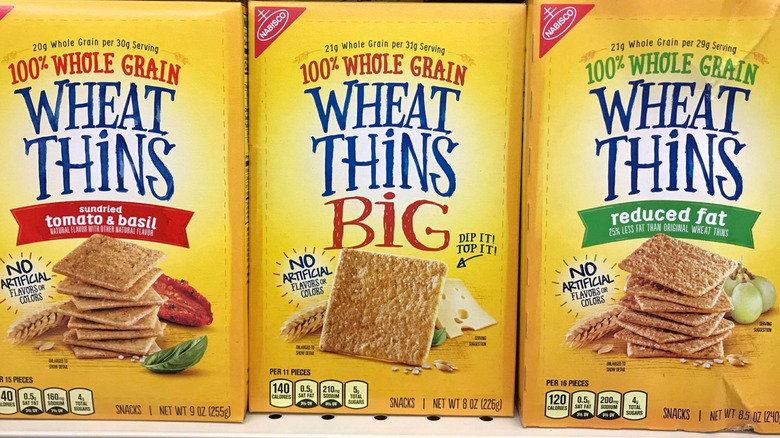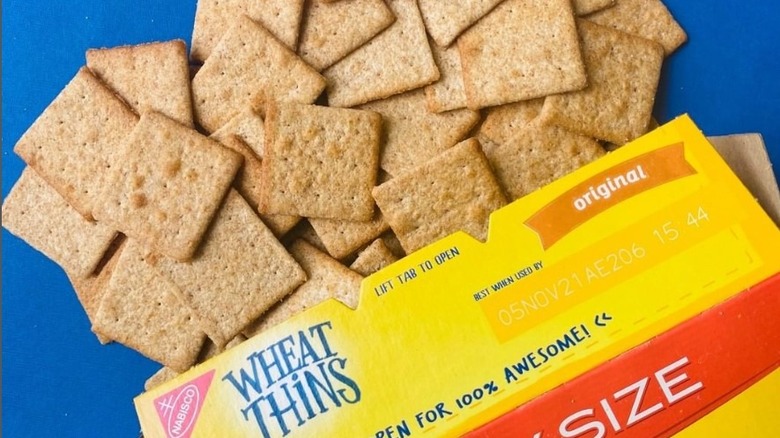Why Wheat Thins Are Actually Banned In Some Other Countries
While European convenience stores are often a treasure trove of savory snacks, there's one classic American cracker you won't ever find on many shelves abroad: Wheat Thins. According to Stacker, the popular, bite-sized crackers are banned in the United Kingdom and select European nations due to one controversial chemical contained in the crackers' packaging.
The European Union has long maintained much stricter policies than the U.S. when it comes to potentially cancerous additives included in food products, restricting the use of many chemicals used in American processed foods and packaging to extend shelf lives (via The New York Times).
One such potentially harmful ingredient is BHT (or butylated hydroxytoluene), a lab-made chemical used as a preservative that helps prevent vegetable oils from expiring. Despite limited amounts of scientific evidence on the dangers of BHT, the use of the preservative is restricted in Europe due to its potentially carcinogenic properties.
While Wheat Thins themselves contain no BHT, the bags used to contain the crackers are made with the chemical. So, just how dangerous is this controversial ingredient?
The chemical BHT has been banned by some regulatory bodies
According to WebMD, BHT is a synthetic antioxidant that, in addition to its preservative uses, is also used as a medical treatment for cold sores, genital herpes, and AIDS. While small doses of BHT are generally considered safe for consumption (or even beneficial in some cases), the danger lies in long-term exposure to large quantities of the chemical (via David Suzuki Foundation).
One past study found that a group of mice exposed to high amounts of BHT over an extended period of time experienced harmful levels of inflammation (via PubMed). The same researchers also found that mice and rats exposed to the chemical developed lung tumors. Other negative health effects exhibited in the exposed mice included reduced lung function, blood clots, and kidney and liver problems.
Despite the rodent-based evidence, to date no human-based scientific studies have found BHT to be dangerous to human beings, particularly when consumed in trace amounts. Still, some regulatory bodies and companies have banned the chemical out of an abundance of caution.
In 2015, in response to backlash against the potentially harmful ingredient, General Mills announced that they would be removing BHT from all of its cereals, noting that, "BHT is an FDA-approved food ingredient, but we're already well down the path of removing it from our cereals. This change is not for safety reasons but because we think consumers will embrace it" (via Chemical and Engineering News).
While some cautious consumers may choose to avoid any foods made or packaged with BHT just to be safe, it's unlikely that indulging in the occasional handful of Wheat Thins will do any lasting damage to your health.

